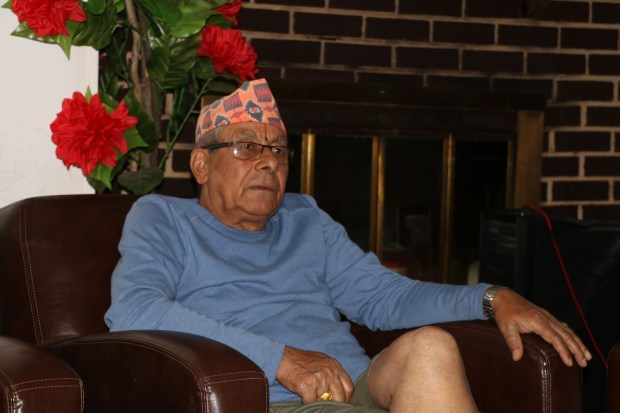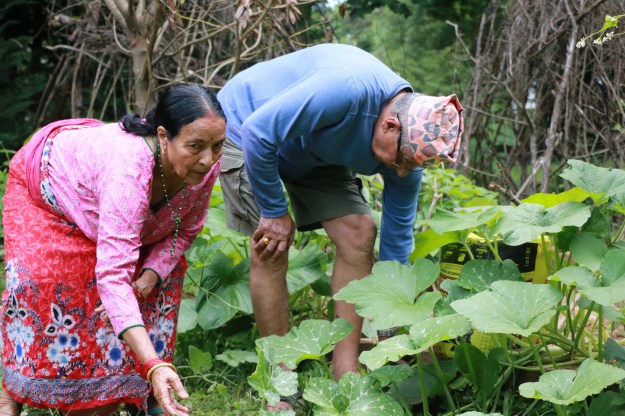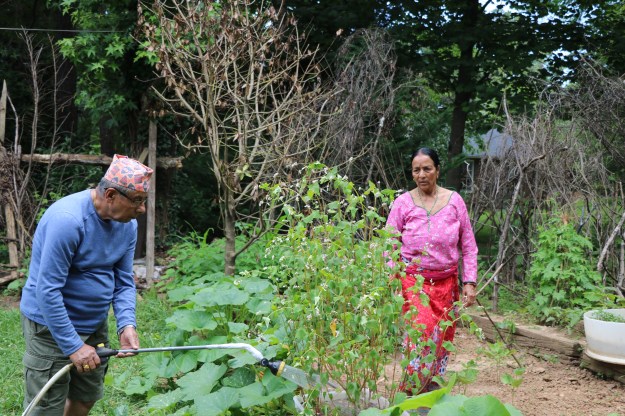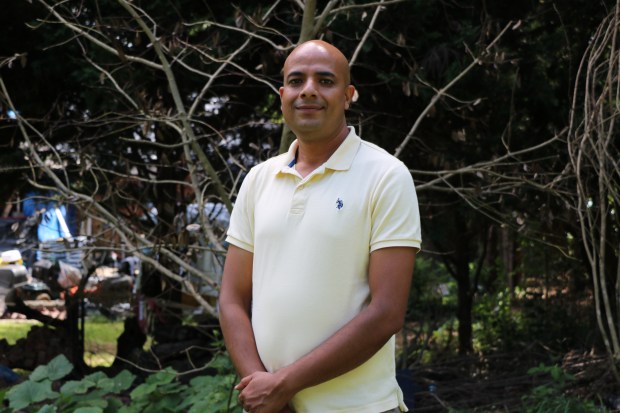On a cold winter afternoon in 1991, I was having lunch at home with my family when Teekay, our dog, began to howl, signaling the presence of intruders. I rushed outside and found my father, bloodied, as a dozen armed soldiers beat him. The officers had brought other men, their ankles and wrists bound, neighbors from our village, Indra Chowk, in the remote Dagana district of Bhutan. The men’s clothes were stained with blood, and their faces were covered in bruises. They looked terrified.
A few soldiers dragged my father inside the house and demanded that he surrender our government-issued documents, including citizenship certificates.
Our family, like thousands of other Bhutanese citizens of Nepali origin, known as the Lhotshampa, were classified as illegal aliens under the Bhutan Citizenship Act of 1985. My great-grandparents had emigrated to Bhutan from Nepal, and my grandparents and parents were born and raised in Bhutan. After the soldiers seized our documents, we had no way to prove our citizenship.
A few days earlier, my father had told me he might be imprisoned. He was one of our village’s local representatives, and our family opposed the “one nation, one people” policy proclaimed by the Bhutanese government in 1989. Under the policy, the government prohibited ethnic Nepalis from wearing traditional dress, practicing Hinduism, or studying Nepali at schools. We continued practicing Hindu rituals, but we did so in fear.

My father had also warned me that the soldiers might try to bribe me with candies to acquire false information they could later use against him. They did; they demanded to know where my father kept his rifle. I wept as I told the officer that my father did not own one. I was seven at the time.
The officers scoured every corner of our house, accusing my father of instigating a war against the government. After confiscating various documents, they tied up my father and took him away, along with the other men.
My father spent 91 days in a detention center. He was tortured physically and psychologically. He saw others being tortured and learned that many died from their injuries. My uncle, a Hindu priest, was imprisoned and tortured twice.
Life outside prison was difficult too. Security forces beat and raped civilians, according to human rights groups, and several houses in our village and other Nepali villages were burned to the ground.
I counted the days my father was away. One day, while I was feeding Teekay on our front porch, I saw a weak, shaken man approaching our house. It was my father. He hadn’t bathed or shaven since he was taken to prison.
That night, over dinner, he told us that he was released on the condition that we leave Bhutan. We had a week to leave. We became part of the Lhotshampa exodus; from the late 1980s to early 1990s, about 100,000 ethnic Nepalis fled Bhutan.
My mother assured my siblings and me that we would return in time to celebrate Dashain, which was a few months away and is one of the biggest festivals celebrated by Hindus in Bhutan and Nepal. I wrapped my belongings—my prized few books, pencils, and stationery—in a plastic bag and put them in a wooden box for safekeeping until our return.
My father fled Bhutan separately to avoid being tracked by authorities. The rest of us—my mother, my seven siblings, two sisters-in-law, and two nieces—traveled as a group.
We walked for a few days until we reached India and reunited with my father on a bank of the Sankosh River. My older brother and I savored ice pops from a street vendor, a cool relief after days of walking. There I saw some of my friends from the village. We later learned nearly everyone from our village was forced to flee. Others, like our village mandal (leader) and a local teacher, had died in custody after being tortured. Their deaths sent a wave of terror among us.
I cried when I realized I might never see my country again.
India, which has close ties with the government of Bhutan, did not allow Lhotshampa refugees to seek asylum on its soil and remained silent on its neighbor’s egregious human rights abuses.
Instead, we were sent to a United Nations refugee camp in eastern Nepal, where we stayed for a few months. The living conditions were horrible. It was extremely hot, and we were exposed to raw sewage, which resulted in an outbreak of cholera and other diseases at the camp. During our brief stay, my 2-year-old niece died of pneumonia.
We were eventually moved to Beldangi II, another refugee camp, where we lived in a makeshift bamboo and plastic hut for nearly two decades. We learned that our home in Bhutan had been set on fire and destroyed. I cried when I realized I might never see my country again.
By the mid-2000s, we were among the more than 100,000 refugees from Bhutan living in seven camps throughout Nepal. We quickly became used to living on very limited resources, including a small amount of rations allocated for refugees in the camp. Our diet consisted of vegetables, beans, and rice. Fruit and meat evaded us until my older brothers found work as undocumented laborers in a nearby town. For nearly two decades, we had neither electricity nor indoor running water.
At the camp, my father received basic treatment for the physical trauma he endured in Bhutanese prison. He has lasting damage, including a permanently impaired eardrum and joint and back pain. His ailments didn’t keep him from volunteering in as a local representative and as a social worker who helped sick refugees access medical care.


Like thousands of others kids, I studied until the 10th grade; after that, a Catholic charity financed my secondary education at a community college. In my free time, I played volleyball and football with balls made of plastic bags rolled inside socks.
In 2005, I left the camp to join one of my brothers in Kathmandu, where he taught high school math and science despite not having a work permit. In Kathmandu, I graduated from college with a journalism degree, thanks to a full scholarship. A few friends—also refugees—and I founded a monthly English-language newspaper called The Bhutan Reporter, which quickly became the primary source of news for refugees in the camps.
Meanwhile, thousands of Lhotshampas, tired of living in limbo, demanded to be repatriated to Bhutan. Nepal and Bhutan held several rounds of talks in an effort to resolve the refugee crisis, to no avail. Despite our shared ethnic background, Nepal’s government did not grant citizenship to any Lhotshampa refugees. India, on several occasions, blocked thousands of refugees from entering Bhutan from the Indian side of the border. Tensions between refugees and the Indian police ultimately led to violence, killing one refugee.

In 2007 the United States announced it would take in 60,000 Bhutanese refugees. By then, I was 21 years old. After two years of rigorous vetting—several interviews, medical and security screenings, and clearances by the U.N. refugee agency, the International Organization for Migration, and the U.S. Department of Homeland Security—I was resettled in the Bronx in New York City. I took some old clothes, my academic credentials, excitement for a better future, and the fear of being separated from my family.
My fears of a long separation were justified. My parents were the last ones to arrive in the U.S., in 2015. They moved to Charlotte, North Carolina, where I had moved a few years earlier and which is home to a sizeable Bhutanese community.
I became a U.S. citizen in 2014, and I’m the proud father of a 2-year-old girl. I hope to take her to Bhutan one day, to show her where her family comes from. But not everyone has been so lucky.
As of January 2018, more than 110,000 Nepali-speaking Bhutanese refugees have been resettled in eight North American and European countries. The vast majority have resettled in the United States. About 7,500 refugees remain in camps in Nepal, according to U.N. officials in Kathmandu, and most want to be repatriated to Bhutan. According to officials, about 1,000 of them are still awaiting third-country resettlement.
Twenty-seven years have passed since that pack of soldiers stormed into my family’s home. The memory still haunts me. I think it always will.